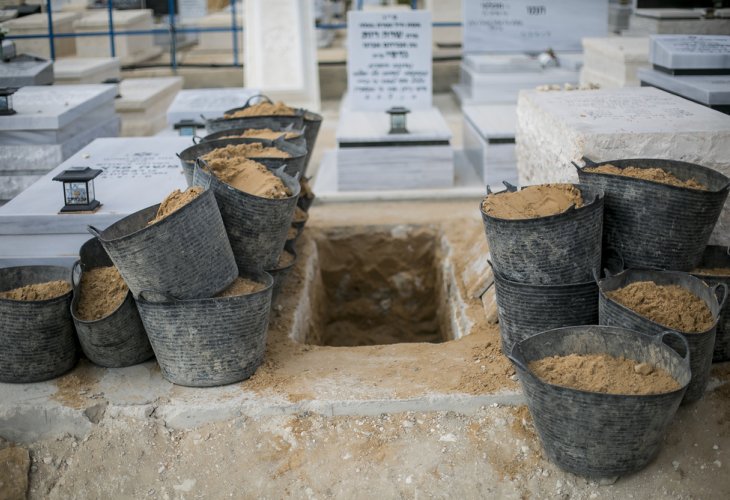Facts in Judaism
Honoring the Dead in Judaism: All You Need to Know
Respecting the deceased in Judaism differs from other nations
 (Photo: shutterstock)
(Photo: shutterstock)There's a story about Rabbi Akiva, sometime after he began studying Torah, when he was walking along a road and saw a Jewish man lying dead by the roadside. Rabbi Akiva began searching around, hoping to find a relative or acquaintance of the deceased. He called out, walked around the area, and when he gave up, he lifted the dead man onto his shoulders and began walking toward the city, where perhaps someone might identify him. Rabbi Akiva walked for a long time – carrying a dead person on his shoulders was not easy – but he intended to fulfill the mitzvah of burial. When he reached the city and couldn't find anyone who recognized the deceased, he took the trouble to bury him in the cemetery.
Rabbi Akiva continued to the study hall and explained to his teachers the reason for his delay. To his surprise, his teacher Rabbi Eliezer ben Hyrcanus told him: "Every step you took was as if you spilled blood!"
Rabbi Akiva was horrified. How could this be? His only intention was to honor the dead.
Honoring the dead in Judaism, Rabbi Eliezer explained, differs from other nations. Moving the body, exposing it to others – these are disrespectful to the sanctity of life. The law states "a met mitzvah (an unattended corpse) acquires its place," meaning that a dead person with no one to care for them should be buried where they are found. We don't move them, we don't expose them; that place becomes theirs.
Indeed, we see in the Torah a special attitude toward the dead. Even those executed by the courts are not left hanging overnight; their bodies are taken down and buried, not left to be disgraced. Joshua hanged the Amorite kings, took down their bodies before sunset and buried them, because "a hanging person is a curse of Hashem." As Rashi explains, humans were created in the divine image, and therefore disrespecting a human is akin to disrespecting Hashem.
It is forbidden to delay burial unnecessarily, unlike the Christian custom of cremating the dead, filling them with embalming material, and displaying them in a coffin, sometimes for several days. In Judaism, this is strictly forbidden. We purify the body and bury it immediately, returning it to a higher realm, because "dust you are, and to dust you shall return."
Leaving a dead person without proper care is a serious prohibition. Even a High Priest on his way to sacrifice his Passover offering or circumcise his son who encounters a met mitzvah, must stop and attend to the burial completely, despite becoming ritually impure. We learn this from the weekly Torah portion, which teaches that a priest may become impure only for close relatives, but the sages interpret this to include a met mitzvah, even though after becoming impure for the dead, he is prevented from performing Temple service for seven days.
Judaism views autopsy, organ donation in many cases, and anything that diminishes the dignity of the dead as serious prohibitions. Our obligation is to bring the deceased to burial immediately, without any ceremonies, donations, or anything that come at the expense of the sanctity of the divine image.

